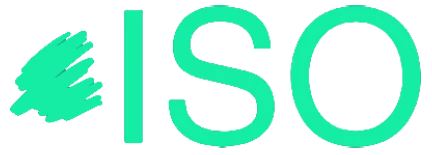Menu
Obsessive Compulsive Disorder (OCD): Understanding, Coping, and Healing
Obsessive Compulsive Disorder (OCD) is a common but often misunderstood mental health condition. It is marked by unwanted thoughts (obsessions) and repetitive behaviors (compulsions) that interfere with daily life. Many people confuse OCD with being neat or perfectionistic, but in reality, the disorder goes far beyond personality traits.
Living with OCD can be exhausting, but with the right treatment, coping strategies, and lifestyle support, recovery is possible. This guide explores what OCD is, its causes, symptoms, and both conventional and natural approaches to managing it.
What Is Obsessive Compulsive Disorder (OCD)?
OCD is a chronic mental health condition where individuals experience persistent, intrusive thoughts that cause anxiety. To ease this anxiety, they engage in repetitive behaviors or mental rituals. While these actions may temporarily relieve stress, they often become overwhelming and time-consuming.
Common examples include:
- Excessive handwashing or cleaning
- Constantly checking locks, appliances, or switches
- Repeating words or phrases silently
- Counting or organizing items in a specific way
- Intrusive thoughts about harm or contamination
OCD can range from mild to severe, and without treatment, it may significantly disrupt work, relationships, and daily functioning.
Symptoms of OCD
Symptoms are divided into two categories: obsessions and compulsions.
Obsessions
- Fear of germs or contamination
- Unwanted violent or sexual thoughts
- Doubts about safety (e.g., “Did I lock the door?”)
- Needing things to be symmetrical or “just right”
Compulsions
- Washing hands repeatedly
- Checking doors, stoves, or lights multiple times
- Counting objects or steps
- Repeating prayers or words for reassurance
- Arranging items in a strict order
For a diagnosis, these symptoms must cause distress and interfere with normal life.
Causes and Risk Factors
The exact cause of OCD is not fully understood, but several factors contribute:
- Brain chemistry: Imbalances in serotonin levels play a major role.
- Genetics: Family history increases risk.
- Personality traits: Highly perfectionistic or anxious individuals are more vulnerable.
- Life experiences: Trauma, abuse, or stressful events can trigger symptoms.
How OCD Affects Daily Life
Living with OCD is mentally exhausting. People spend hours on compulsions, which affects productivity, relationships, and emotional health. Many also experience guilt, shame, and isolation, fearing judgment from others.
Without proper treatment, OCD may worsen over time. Early recognition and professional support are key to recovery.
Conventional Treatments
Treatment for OCD often combines medication and therapy.
1. Medication
Selective Serotonin Reuptake Inhibitors (SSRIs) are commonly prescribed. They help balance serotonin and reduce obsessive thoughts.
2. Psychotherapy
Cognitive Behavioral Therapy (CBT), particularly Exposure and Response Prevention (ERP), is highly effective. It gradually exposes individuals to triggers while teaching them to resist compulsions.
3. Lifestyle Adjustments
- Regular exercise
- Stress management through mindfulness
- Adequate sleep
- Limiting alcohol and caffeine
Coping Strategies
Alongside treatment, individuals can adopt personal coping mechanisms:
- Journaling: Tracking triggers and responses.
- Support groups: Sharing experiences with others facing OCD.
- Mindfulness meditation: Staying present helps reduce intrusive thoughts.
- Routine building: Maintaining structure reduces stress.
Natural and Alternative Approaches
Many people explore natural remedies to complement medical care. These may include:
- Herbal supplements like St. John’s Wort or ashwagandha.
- Nutritional support, including omega-3 fatty acids and magnesium.
- Yoga and breathing techniques to calm the nervous system.
These approaches may not replace therapy or medication but can support overall well-being.
OCD and Related Disorders
OCD often coexists with other mental health conditions, such as:
- Depression
- Anxiety disorders
- Eating disorders
- Tourette’s syndrome
Recognizing and treating coexisting conditions improves recovery outcomes.
Iboga, Ibogaine, and OCD
In addition to traditional therapies, natural plant medicines are being explored for mental health. Iboga, a root bark used in African traditions, and its active compound ibogaine, have gained attention for their powerful effects on the brain.
Primarily studied for addiction recovery, ibogaine resets neural pathways and restores balance in neurotransmitter systems. Researchers are now considering its potential for conditions like Obsessive Compulsive Disorder (OCD), where intrusive thoughts and compulsions are tied to disrupted brain chemistry.
Though more research is needed, iboga and ibogaine represent an exciting natural avenue for future treatment possibilities.
At Ibogastoreonline, we provide premium iboga products with guidance and support for those interested in alternative healing approaches.
Take the Next Step with Ibogastoreonline
If you or a loved one struggles with OCD or other mental health challenges, know that support is available. At Ibogastoreonline, we are committed to providing safe, high-quality iboga and ibogaine products to help individuals explore new paths to healing.
📞 Call us today at +237653823790 or +237672584494 to start your journey toward balance and recovery.
🌿 Use coupon code RECOVERY20 for 20% off premium iboga products at Ibogastoreonline.
Final Thoughts
Obsessive Compulsive Disorder (OCD) can be overwhelming, but with the right combination of medical treatment, coping strategies, and openness to natural alternatives like iboga and ibogaine, recovery is possible. At Ibogastoreonline, we believe healing is a journey, and we are here to walk with you every step of the way.
ibogastoreonline.com
Facebook
Pinterest
Twitter
LinkedIn


